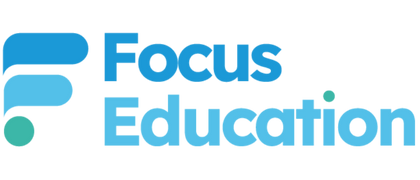Writing Curriculum Consultancy
This consultancy aims to provide you with an independent assessment of your writing curriculum's success. It will consider what might need some attention and is like a ‘deep-dive’ but with more time.
It will comprise the following (these are examples with other aspects being looked at as necessary):
Spotlight on the Writing Curriculum Consultancy
Evaluation of your curriculum leaders’ long- and medium-term thinking and planning.
- Have a full understanding and awareness of the new writing framework 2025
- Consider fidelity to the National Curriculum programme of study
- Look at how your pupils’ context is considered
- Consider how well you know your strengths
- Discuss your current points for development
- Evaluate how appropriate your policies and procedures are
- Consider how vocabulary is being developed
- Evaluate progression mapping across the school
- Consider how cumulatively and cohesively your pupils acquire knowledge
Learning Walk
- Examine how curriculum implementation is aligned with the intent
- Check that the agreed protocols are being followed
- Consider if teachers' subject knowledge is strong enough
- Consider if the classroom environment supports learning
- Look at how CPD and training are supporting better outcomes
- Consider how the needs of SEND pupils are met
- Evaluate how teachers are helping pupils to know more and remember more
- Consider how more able pupils are being challenged
- Focus on learning behaviours
Book Scrutiny
- Check that presentation is in line with school policy
- Consider if the quality and quantity are appropriate
- Look at how pupils are building on prior knowledge
- Is there evidence of subject-specific vocabulary being used?
- Do books show that teacher subject knowledge is strong?
- Is there evidence of progression over time?
- Is there evidence that pupils are being asked to follow agreed protocols?
- Needs of all pupils are met
Staff Voice (selection of teachers seen during the learning walk)
- Consider why the lesson taught was being taught
- Consider what they would consider successful in that lesson
- Discuss what comes next
- Consider how they build on prior knowledge
- Consider how well they know the expectations for the end of their year, the year before and the one after
- Discuss how feedback is provided and how intervention works
- Consider the impact of assessment
- Consider the impact that professional development (CPD) has had on their practice
Pupil Voice (3 groups: KS1; lower KS2; Upper KS2) – usually same pupils as ones in book scrutiny
- Consider what happens if they get stuck
- Discuss which work they found easy
- Discuss work they found challenging
- Discuss what doing well means to them and how they know
- Consider how they deal with feedback
- Consider what a typical writing might look like
Other ways we can support you with writing
Improving Standards of Writing across the Curriculum
This one-day training is for literacy subject leaders, key stage co-ordinators, teachers and teaching assistants in key stages 1 and 2.
In line with Ofsted expectations, the English programme of study and the latest research, this training will provide delegates with an opportunity to explore guided writing and how it can be used to support and challenge target groups. It will consider the key principles of assessment for learning related to planning for writing and feedback.
Using a mixture of informative, reflective and practical activities, delegates will revisit and review key principles and effective practice in guided writing and formative assessment, feedback and improvement marking.
The training will address:
- How can we use guided writing to focus support and promote progress for all children?
- How can we plan clear learning intentions and co-create toolkits for writing to enable focused feedback?
- How can we ensure that feedback on writing promotes thinking and improvement?
- How can we effectively manage marking?
Moderating Pupils Writing
This one-day training is for teachers and English subject leaders in primary schools. It focuses on developing a shared understanding of the moderation process and expectations across the year for years 1, 3, 4 and 5 and looks at how to meet these expectations.
The training will address:
- end-of-year expectations for each year group
- progress across the year - recognising “on-track” progress
- a practical moderation session
- using moderation as part of the assessment process to inform teaching
- consideration of a range of practical approaches and ideas to ensure progress
The benefits of attending this training are:
- improved and secure subject knowledge of the expectations of the writing curriculum
- an understanding of how moderation can inform teaching, ensure progress and raise standards
- an understanding of the range of evidence used in moderation
How to book
Contact our consultancy department by email or fill in the form here. For more information, please see our consultancy page, which will explain what we can offer.
